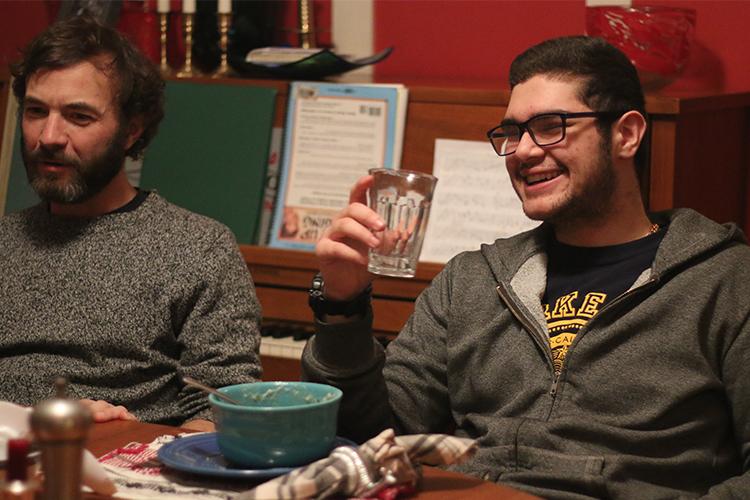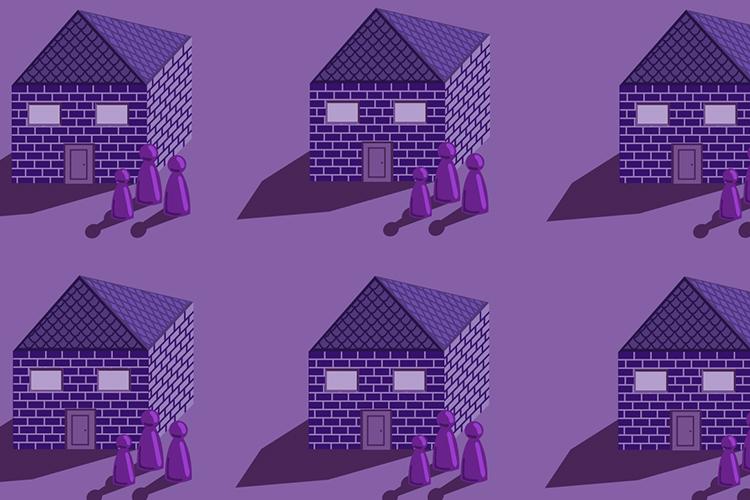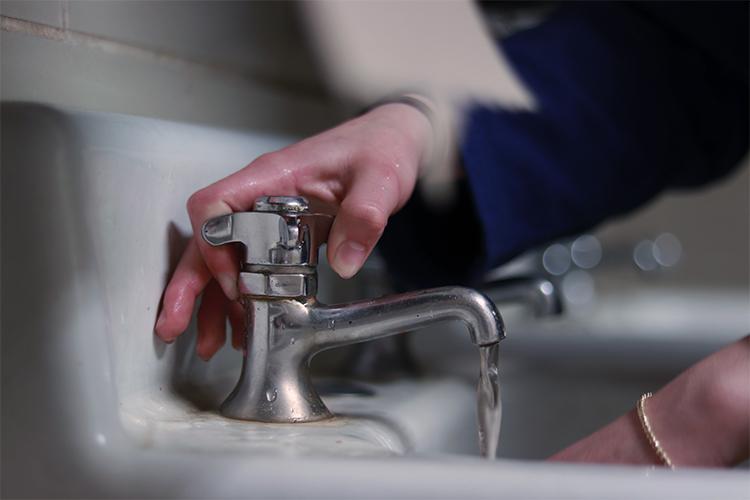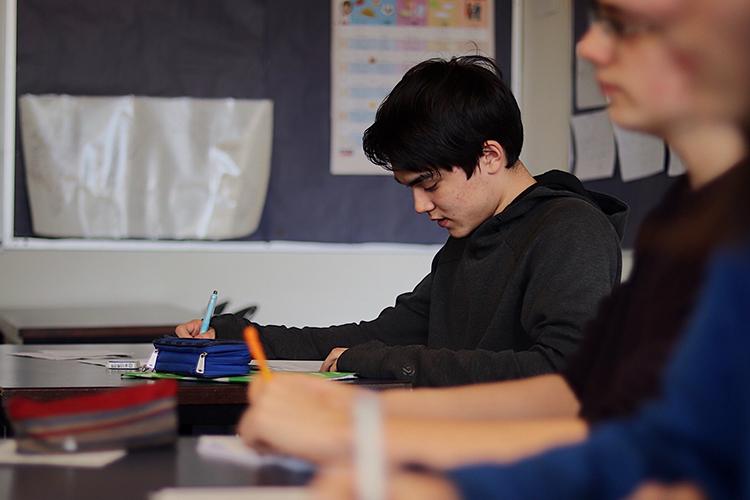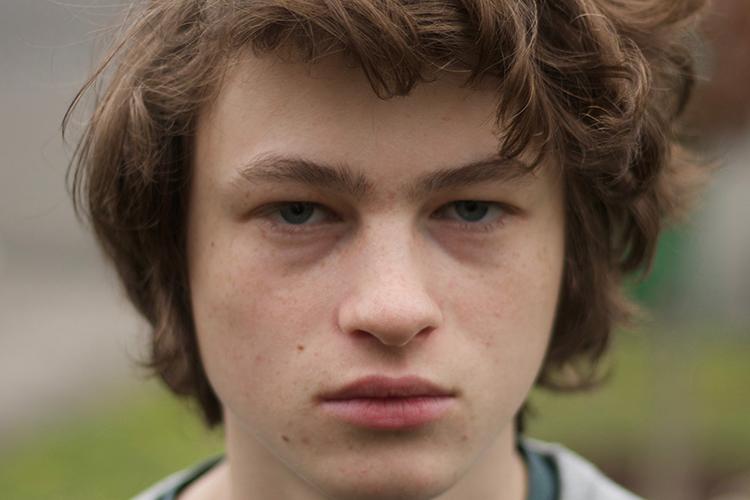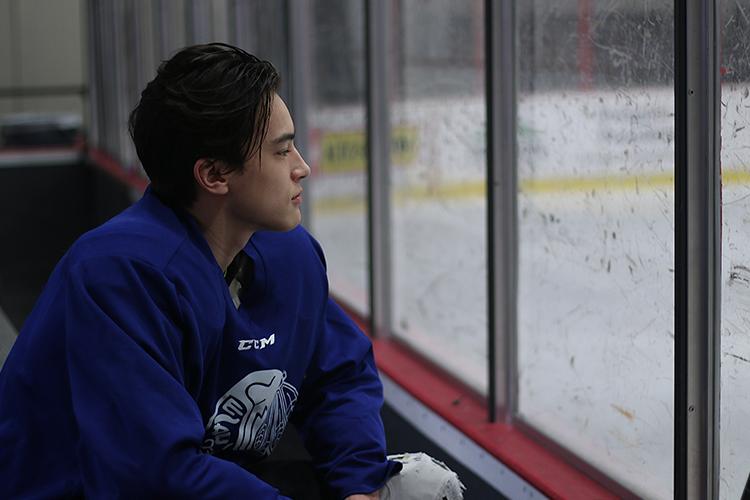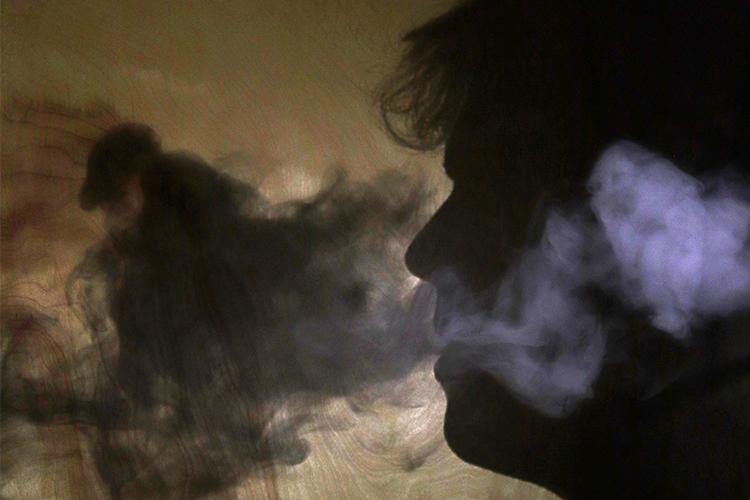
Glasses clink and silverware taps on the table. Ghaith Alrayyes, sitting across the table from junior Max Carlin’s family, taps his fingers nervously as he observes their unfamiliar faces.
Alrayyes feels a little out of place. He is shy one moment and outgoing the next, as the mood in the room constantly changes. The words he means to get out stop short at his tongue, and communication is difficult as the family acclimates to their new dynamic.
Initially, Carlin did not want a host brother. He had had host siblings in the past, and the sense of responsibility at times felt exhausting. The first time Carlin met Alrayyes, Carlin felt hesitant and worried about how well they would connect because of their different backgrounds. Alrayyes was raised Muslim in Palestine; Carlin was raised Jewish in the United States. But Carlin was pleasantly surprised.
“There’s a lot of crazy things going on and personal stuff that he’s experienced that I couldn’t even imagine. And it’s kind of interesting to me, how even after coming from a place that’s in this big conflict, he’s just a normal kid,” Carlin says.

In 1981, Sarah Ames, Carlin’s mother, went on her own exchange through AFS Intercultural Programs — a nonprofit exchange organization intended to expose students to global perspectives in hopes of making the world more peaceful. AFS is the same program that brought Alrayyes to Portland. Ames spent a year in Jordan, living with a Palestinian family for part of her exchange. “It just seemed like kind of paying it forward. Like a Palestinian family had taken me in when I needed a family in Jordan and I was on AFS, and now there’s an AFS kid (staying with us) … It just seemed like it was meant to be,” says Ames.
Although Carlin and Alrayyes may come from different backgrounds, the two have formed a bond over the things they have in common to connect and learn from one another.
Alrayyes was born June 6, 2002, and spent the majority of his childhood in Gaza, Palestine, a city central to much of the violence in the Israeli-Palestinian conflict. Beginning in the mid-20th century, the contentious relationship between Israel and Palestine has now spanned decades, resulting in thousands of deaths on both sides. Gaza, which is roughly the size of Portland but has a population about twice as large, has been the setting of many violent attacks throughout the conflict.
One weekend, when Alrayyes was 7 years old, his school was bombed and the building was completely destroyed. For a month afterwards the school remained closed, as the community waited out the violence from within their homes. Then in 2012, while Alrayyes and his friends sat outside a video game shop, a car blew up down the street, and the window behind them shattered, spraying glass everywhere. Though Alrayyes walked away mostly unharmed, one of his friends was badly injured.
Two years later, as Alrayyes sat outside the door of a neighbor’s house playing cards, a bomb was set off two kilometers away, knocking him out.
These encounters with violence and conflict motivated Alrayyes to move to Turkey in 2015, seeking safety and opportunity outside of Gaza. Despite having to leave his city and his parents, Alrayyes was able to move in with his adult siblings. “It’s pretty complicated in Palestine, especially in my city, Gaza … So it was pretty hard, it didn’t give us a lot of chances,” he says. “We were pretty closed minded because we can’t travel, we can’t do a lot of stuff … While in Turkey it’s completely different, it’s so opening, it has a lot of opportunities.”
But Alrayyes’ experiences living in Gaza have also motivated him to share what is happening in Palestine and what the residents of Gaza are going through. Alrayyes came to the United States through the Kennedy-Lugar Youth Exchange and Study (YES) scholarship, a program partnered with AFS with a focus on breaking down stereotypes. “It was created after the 9/11 to clarify that Muslims are not terrorists, we don’t support terrorism,” says Alrayyes. “So it’s mainly for Muslim countries … We go to the U.S., different communities and different places, and then we do a lot of presentations about our culture and everything, what’s happening.”
Funded by the U.S. Department of State, the program “provides scholarships for secondary school students from countries with significant Muslim populations to spend one academic year in the United States.”
The program is popular for high school students in Gaza and each year around five students from the city get the chance to leave through YES. In 2018 later left for the U.S. through the scholarship.
His first months in Portland were difficult, as he struggled to feel comfortable while living with his first host family. Alrayyes initially attended Benson High school, but students at Benson did not reach out or welcome him and he struggled to connect with the community. “I didn’t like Benson that much,” says Alrayyes. “Grant is more open, like the relationships and the friendships, and I like the teachers more.”

About a month into the school year, Alrayyes decided to transfer into Grant. He felt more welcome at Grant than at Benson. But although it was an improvement, he still had trouble adjusting to the culture of the school. “The first time I came, I didn’t know a lot of people and didn’t have much friends, it was very different for me,” says Alrayyes. He had trouble making American friends and spent most of his time with the other exchange students at Grant.
Alrayyes says that his first exchange family was not a good fit for him; his original host mother was frustrated and worried about politics in a way that made Alrayyes uncomfortable. He decided switching families was for the best.
In November, Alrayyes moved in with the Carlin family. The transfer shifted his exchange experience completely. Since he first moved, Alrayyes has gotten the chance to integrate himself more into the Grant community. “He didn’t really want to hangout with Grant kids, and he didn’t really like Grant. And then he switched host families and he met his host brother Max, who introduced him to a lot of people, and now you can barely get a hold of him,” says Alva Lokreim, another exchange student at Grant and friend of Alrayyes.
Alrayyes and Carlin clicked immediately and formed a sibling-like bond. “I always wanted to have a twin brother,” says Alrayyes. “But now he’s kind of like my twin brother because we’re the same age and we talk about the same topics, and we spend more time with each other.”
Through the exchange, both Carlin and Alrayyes have gotten a chance to learn about each others’ perspectives. Carlin grew up only hearing half of the story of the Israeli-Palestinian conflict, but Alrayyes has given his host brother a chance to see Palestine through a different lens. “I’ve never really bothered to look into it, but I’ve always just had a positive opinion of Israel because I’m Jewish,” says Carlin. “But ever since I heard about (the Palestinian perspective) I’ve had a much more conflicted opinion; I just want to learn more now that I’ve met (Alrayyes) and heard all this stuff.”
The cultural differences that Alrayyes had to adjust to went beyond school. In Alrayyes’ home in Gaza, his parents had more traditional gender roles. “At my original home, my mother cooks, cleans, like she does everything. And my father, he works, and me, I go to school and do sports,” says Alrayyes. “And they’re like kind of the opposite. So my host mother she works, and my (host) father he works, but inside the house. So I see him inside the house more, so it’s kind of funny because that’s new.”
With the shift of household roles, Alrayyes has found himself doing chores for the first time in his life. Recycling in particular is a new experience. “He didn’t know how to recycle anything because that’s just such a Portland thing,” says Carlin.
But Alrayyes is open to trying new things: During Hanukkah, a Jewish holiday, he participated in lighting the menorah, as well as saying the prayers. Alrayyes saw Hanukkah as a chance to experience the Jewish culture, which he had not had the chance to learn about in the past.
In just a short time, Alrayyes has become a part of the Carlin family. “He definitely fits in really well in the family. I say we get yelled at the same amount,” says Carlin.
After his exchange year, Alrayyes plans on returning to Turkey to finish his senior year. He hopes to go to university either in Turkey or the United States, then return to Palestine. He wants to bring some of the American perspective he has gained back with him, in hopes of making it a more open place. “I really want to develop my community, especially my city, Gaza. I really want to open people’s minds,” he says.
And even though Alrayyes will return to Turkey in June, he and Carlin plan to stay in touch. “If I can, I would like to visit him,” says Carlin. “He was on FaceTime with his parents and they said that I could stay in his house for a year because he’s staying with us for a year. We’ll see if it works out.”
As Alrayyes’s time in Portland comes to a close, he reflects on his time in the U.S. and the skills and relationships he’s gained through the YES program. “It (opened) my mind so much. I saw all the different things, like all the diverse stuff that’s happening in the world,” says Alrayyes. “And I’ve just learned so much stuff … and it helps me in my daily life and it will help me in the coming days and years.”



























